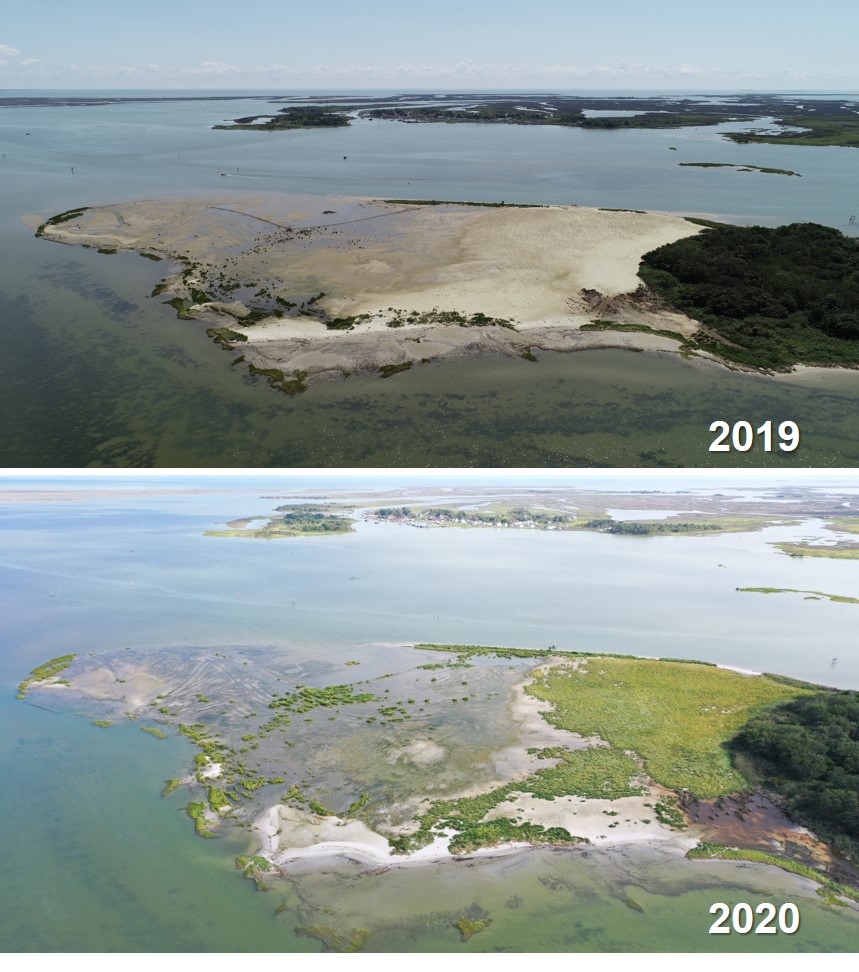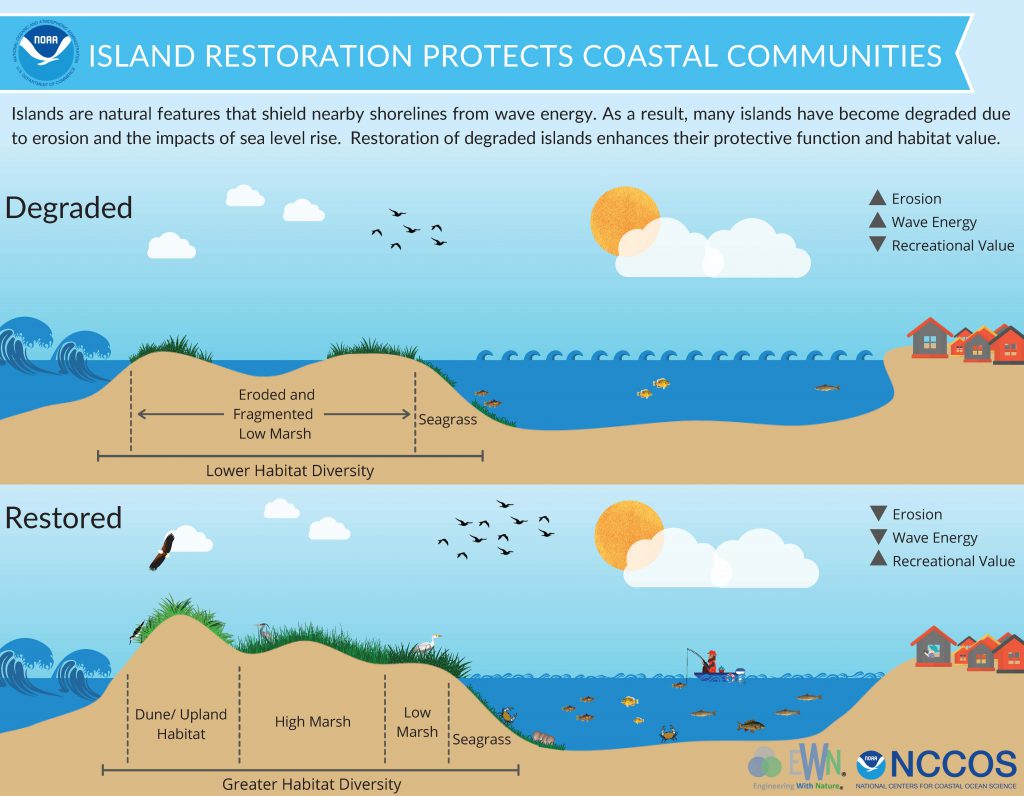
NCCOS and the U.S. Army Corps of Engineers (USACE) Engineering With Nature® (EWN) Initiative began collaborating on coastal and community restoration projects in 2016. These collaborations take center stage in the debut season of the EWN podcast series Engineering With Nature®.
To mark EWN’s 10th anniversary, USACE launched the podcasts to showcase what has been achieved, to share knowledge developed through EWN collaborations, and to share the opportunity to apply EWN principles and practices in the U.S. and around the world. EWN seeks to harness the power of nature to achieve economic, environmental, and social benefits known as “triple-win” outcomes, and this new podcast series tells the stories of the innovative people working to implement EWN.
In the episode, NCCOS research ecologist Paula Whitfield discusses the important role of natural and nature-based features (NNBF) — which include wetlands, mud flats, oyster and coral reefs, mangroves, sea grasses, maritime forests, as well as beaches, dunes, and islands — to enhance and improve coastal resilience, and how these strategies are being used to help communities adapt to changing conditions such as sea level rise. Paula also discusses the Swan Island Restoration project in the Chesapeake Bay, a current NCCOS and USACE collaboration to evaluate the impacts and benefits of using dredged sediments for island restoration.
NCCOS researchers are also adding their expertise to the International NNBF Guidelines Project. Led by EWN, the project will develop International Guidelines on the use of Natural and Nature-based Features to serve as a blueprint to support practitioners, researchers, engineers, and others. The Guidelines will be available at the start of 2021.
The effective use of NNBF approaches requires data to provide guidance on how, where, and when to best employ NNBF solutions. NCCOS provides the research and science components to help coastal communities use NNBF as an effective strategy to enhance their resilience.

